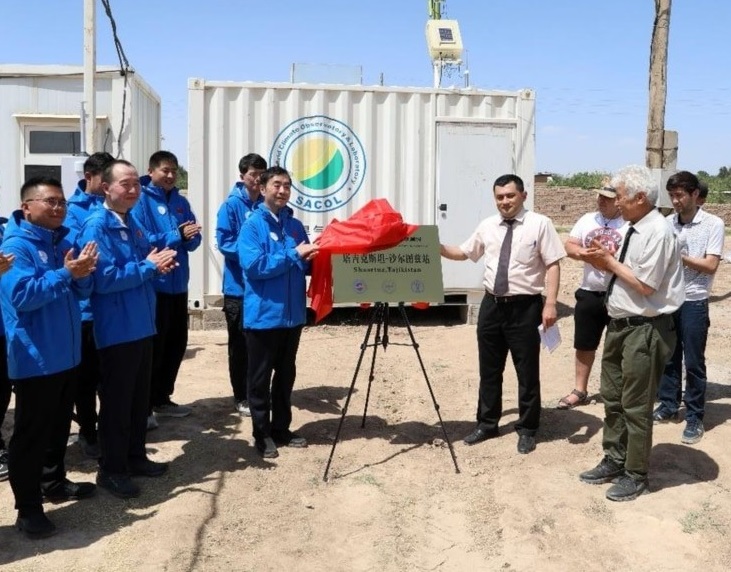A Chinese super-observatory in the heart of Central Asia
In Šakhritus - in the border region between Tajikistan, Uzbekistan and Afghanistan - a large scientific station of Lanzhou University has been inaugurated for the study of the environment and climate in the countries of the Belt and Road Initiative. A hub of the wider LiDar network. Suspicions about the possible use of these facilities for espionage activities.
Dushanbe (AsiaNews) - A large climatic observatory built by the Chinese in Tajikistan, not far from the borders with Afghanistan and Uzbekistan and just inaugurated, has given rise to much speculation as to its real use, which could also include wide-ranging surveillance to ensure the security of China itself.
In fact, analysts believe that the potential of the Šakhritus 'super-station' in the south-west of the country is much broader than its stated aims, starting with Beijing's race for world technological supremacy.
The plant is presented as 'a step forward in the development of ecological control technology', designed to deepen the detailed analysis of the environment in Central and South Asia. The first information about it appeared in the New China Agency (Xinhua) on 16 June, while the Tajik media made no mention of it.
It is one element of a growing network of similar stations, a project developed by Lanzhou University together with several other institutes, as part of the Belt and Road Initiative.
The Oxus company's director for Central Asia, Bradley Jardine, noted that a station like the one at Šakhritus 'relies on meteorological satellites, similar to the one that not long ago lost its way, crashing into US territory'.
In that case, Beijing had assured that it was a deep-sea balloon used only for climate observation purposes, flying over Alaska, Canada and parts of the USA, before being shot down by US anti-aircraft fire. Washington authorities claimed that technology for espionage use was contained in it.
Jardine argues in an interview with Azattyk that 'the Tajik border is an excellent observation base for any form of espionage, especially towards the unstable areas of Afghanistan', and that precisely LiDar systems help to penetrate all the details of the natural and non-natural environment with autonomous means of artificial intelligence, an area in which China is undoubtedly at the forefront worldwide.
This also enables China to improve its domestic technology, refining the capabilities of electric autonomous transport vehicles, and allowing them to exhibit much more ecologically favourable data abroad.
One field in which China intends to excel in the coming years, for example, is the production of cars of the future, a sector in which large investments are being made from the state budget, starting with the scientific research of leading universities such as Lanzhou, which is also the city from which the network of LiDar stations starts.
This then extends through Xinjiang, Pakistan, Tajikistan, Iran, Israel and Algeria, with over 20 stations, some already operational, others to be built or completed.
One of the academics working on the project in Lanzhou, Professor Huang Qianping, explained to the New China Agency that the station 'offers comprehensive data on the dust polluting materials and the environment in the crucial regions of Central Asia', and may make it possible to prevent major atmospheric disasters and provide reliable information on climate change in general.
The Šakhritus area is one of the hottest in this respect, and the Lanzhou specialists assure that this location will enable laser-generated three-dimensional maps to be drawn up for use in all other areas of the world with such extreme climates and temperatures. All other possible uses of this technology, for now, remain hidden beneath the fine dust.
12/02/2016 15:14







.png)










